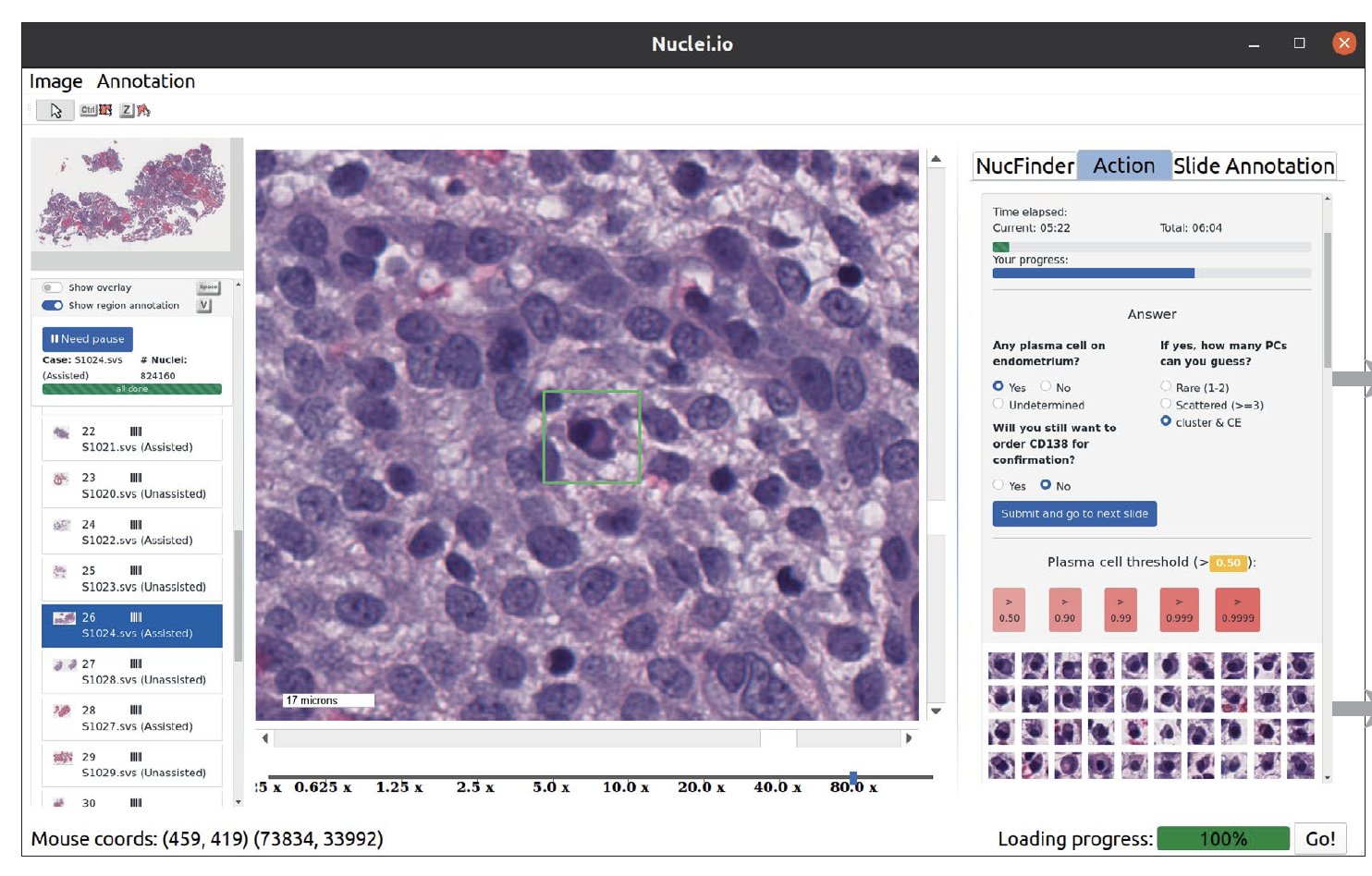Time: 2024-06-22
Artificial intelligence (AI) is transforming the field of pathology by assisting pathologists in identifying abnormal cells in blood samples and biopsies with greater speed and accuracy. Stanford Medicine has developed a novel AI tool called nuclei.io that can be customized by pathologists to identify diseased cells under the microscope. This innovative tool has shown remarkable results in diagnosing conditions like endometritis and metastatic colon cancer, making pathologists 62% faster at making diagnoses and 72% more accurate.
The nuclei.io framework developed by researchers at Stanford University integrates active learning and real-time human-in-the-loop feedback, enhancing the creation of datasets and models for various pathology applications. This framework has been validated in studies that identified plasma cells in endometrial biopsies and detected colorectal cancer metastasis in lymph nodes, significantly improving diagnostic accuracy and efficiency. By facilitating collaborative interaction between pathologists and AI, nuclei.io demonstrates its potential across diverse clinical tasks in pathology.

The study utilized nuclei.io, a bespoke desktop software, for annotating data, visualizing images, and facilitating pathologist-AI collaborations. Operating on Ubuntu 20.04 LTS, the software integrates various packages like numpy, matplotlib, and TensorFlow for nuclei segmentation and feature extraction. Active learning prioritizes uncertain data points for pathologist annotation, enhancing efficiency over random sampling and demonstrating superior performance in model development compared to other tools.
Integrating AI and machine learning in digital pathology promises faster and more accurate diagnoses, reducing the time per case significantly for conditions like prostate cancer and colorectal cancer metastasis. Challenges such as insufficient labeled data and the need for transparent and interpretable models must be addressed to ensure seamless integration of AI in medical settings. The development of nuclei.io marks a significant step towards enhancing diagnostic efficiency in pathology and improving patient outcomes, prompting further exploration into its broader applications across diverse clinical settings.
In conclusion, the collaboration between pathologists and AI tools like nuclei.io holds immense potential in revolutionizing clinical pathology. By leveraging the power of artificial intelligence and machine learning, pathologists can enhance their diagnostic accuracy and efficiency, ultimately leading to improved patient care and outcomes.